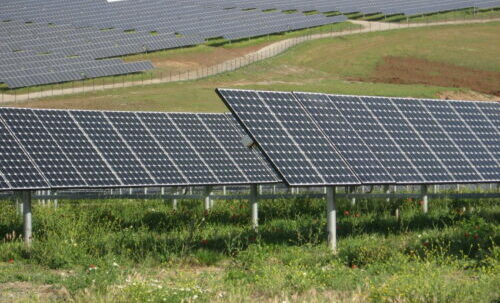
Anthony Abdul Karim Kamara Jnr: Sierra Leone Telegraph: 17 September 2018:
Over 90 participants from more than 30 countries are arriving at the Rwandan Capital City of Kigali as part of efforts by the Climate Investment Funds to bring countries together to discuss issues and challenges related to the design and implementation of their investment plans launched by CIF’s Scaling-Up Renewable Energy Program (SREP) in Low Income Countries.
“The 8 billion investment facility accelerates climate change mitigation projects by empowering transformations in clean technology, energy access, climate resilience and sustainable forests in developing countries worldwide.”

The Kigali Summit which starts tomorrow – Tuesday 18 September, will also discuss the status of the SREP Investment Plans, resource situation and the future of renewable energy, given that renewables are widely regarded as a cost competitive option for meeting energy demand and mitigating the dangerous effects of climate change.
The two-day event will see representatives from the governments of the SREP participating countries from Africa, Asia, and Latin America, Multilateral Development Banks (MDBs), private sector and civil society discuss and take a detailed look at six main themes:
* Towards universal energy access: achievements, challenges and opportunities
* Multi-Tier Access Framework for measuring energy access
* Emerging financial instruments, business and delivery models for renewable energy
* Enabling environments for private sector investments
* Monitoring, Evaluation and Learning and
* Design and Implementation of Gender-Responsive Operations in Energy Access.
 Former United Nations Under-Secretary-General and founding CEO and Special Representative of the Secretary-General for Sustainable Energy for All, the Vienna-based organization, Dr. Kandeh Yumkella, is slated to address participants as a keynote guest speaker.
Former United Nations Under-Secretary-General and founding CEO and Special Representative of the Secretary-General for Sustainable Energy for All, the Vienna-based organization, Dr. Kandeh Yumkella, is slated to address participants as a keynote guest speaker.
Ahead of the conference, the Sierra Leonean Member of Parliament and Chair of the Parliamentary Select Committee for Foreign Affairs and International Cooperation noted that one of the greatest energy challenges that the world face is ending energy poverty.
 “Goal 7 of the Sustainable Development Goals (SDGs) provide an opportunity for the world to come together to ensure the energy poor have access to modern energy sources to manage their everyday lives and to thrive economically.” Said Yumkella, “the concerted efforts will require aligning the 4Ps – Politics, Public-Policy, Pricing and Public-Private Partnerships,” one area his remarks will focus on.
“Goal 7 of the Sustainable Development Goals (SDGs) provide an opportunity for the world to come together to ensure the energy poor have access to modern energy sources to manage their everyday lives and to thrive economically.” Said Yumkella, “the concerted efforts will require aligning the 4Ps – Politics, Public-Policy, Pricing and Public-Private Partnerships,” one area his remarks will focus on.
“The Climate Investment Funds (CIF) has been supporting countries to close the energy access gap for the 1.1 billion people worldwide without electricity and clean fuels. CIF’s Scaling-up Renewable Energy Program (SREP) targets 27 low-income countries to invest in off-grid, mini-grid, as well as grid-connected electrification and clean cooking projects,” said Dr. Zhihong Zhang, head of SREP and Clean Technology Fund (CTF), based at the World Bank’s Washington, DC Headquarters.
“Our investments are typically the first of its kind in these countries to help create an enabling environment and reduce the risks of deploying renewable energy technologies, ranging from solar to geo-thermal, wind, small hydro and biomass,” underscored Zhang via telephone as he responded to questions raised about the readiness of the countries in question to offer a risk-free and stable environment, one critical factor private sector investors look for.
Emphasizing the critical role the CIF’s plays in 72 developing and middle-income countries with a portfolio of over 300 investments, Zhang noted that the SREP Pilot Countries Meeting “provides a platform to foster peer-to-peer learning for the countries to share their successes and lessons learned and to interact with the Multilateral Development Banks (MDBs) that are partners of the CIF on the ground, as well as the private sector, civil society and other numerous stakeholders.

Be the first to comment